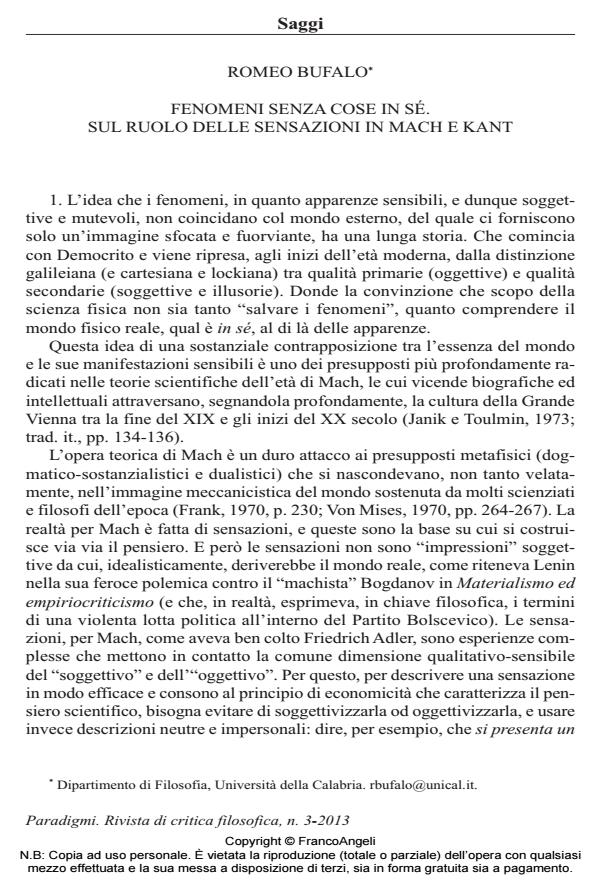Phenomenon without Noumena. Sense Experience in Mach and Kant
Journal title PARADIGMI
Author/s Romeo Bufalo
Publishing Year 2014 Issue 2013/3
Language Italian Pages 20 P. 111-130 File size 123 KB
DOI 10.3280/PARA2013-003008
DOI is like a bar code for intellectual property: to have more infomation
click here
Below, you can see the article first page
If you want to buy this article in PDF format, you can do it, following the instructions to buy download credits

FrancoAngeli is member of Publishers International Linking Association, Inc (PILA), a not-for-profit association which run the CrossRef service enabling links to and from online scholarly content.
Though Mach shared the image of Kant as the theorist of a real and unknowable "thing in itself", his philosophical and scientific position is perfectly in line with the Kantian idea that the only reality that we may experience is made of phenomena, that is sensations.
Keywords: Appearance/reality, Thing in Itself, Phenomenon, Sensation, Sensible/ intelligible.
Romeo Bufalo, Fenomeni senza cose in sé. Sul ruolo delle sensazioni in Mach e Kant in "PARADIGMI" 3/2013, pp 111-130, DOI: 10.3280/PARA2013-003008